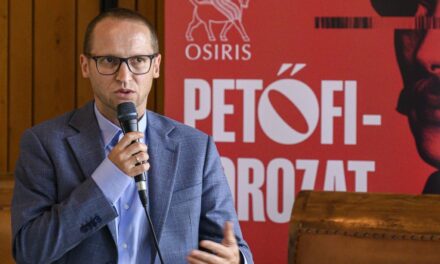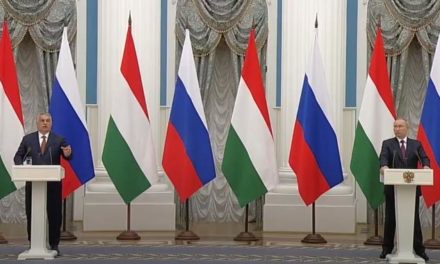Those of us who have been members of the European Union for quite some time (it will be 20 years this year), perhaps see the community, its functioning, where it is headed, and what goals guide it through a different lens than those who joined later. Croatia became a full member in 2013, so they may be able to assess with less bias whether the organization has deviated from the path envisioned by the founders or not. Stephen Bartulica, a member of the Croatian parliament, has this to say:
- Before I explain my opinion in more detail, I have to say that I love coming to Budapest, I was last here in May, and it is always a great pleasure to visit your country. I would also like to say that I greatly appreciate the perseverance of your government, the perseverance of Viktor Orbán, that he is indeed fighting and fighting in Brussels against those forces that are not interested in preserving national sovereignty and individual freedoms. It is clear that the European Union has deviated from the path, deviated from the founding ideas, so much so that many people in Brussels today would label the founding fathers as extremists. We have a lot of reasons to worry, but as civilians, I think it is possible to change the fate of our countries, with diligent and persistent work. In Croatia, for example, the referendum that we organized in 2013, shortly after our accession to the EU, was such a step on the issue of marriage. It was a grassroots initiative that forced the then-hostile government to hold this referendum with a large number of signatures. I am happy to tell you that
in our country, marriage is the creation of an alliance between a woman and a man, and this has now been included in the constitution. Civil society has achieved this.
"Well, how should Europe be viewed?" I think what an English writer, David Gothard, described is very interesting. He classified people into two main groups, one of those who were somewhere and the other of those who were anywhere. The roots, values and interests of the former - they are the majority - bind them to some community and place. The group of people everywhere is smaller but influential, they are the globalists. They are generally mobile, well-educated, who can build a career anywhere. One day they can be in New York, the next in Brussels, then in Geneva, then again in their own country, it doesn't matter to them. They have developed their own culture, their own interests and are very good at pushing and spreading this. This does not always coincide with the local interests, i.e. those somewhere. People everywhere have become alienated from any local community, its values, and over time have lost any concern or concern or any empathy for the local community, or even for a nation-state.
- As a member of parliament, I believe that I have to represent the interests of the people somewhere, not the interests of the globalists, the people everywhere, but
we have to pay close attention because freedom usually disappears gradually, not suddenly. That's why it's important to talk to each other, to be able to create a strategy, and to get to know each other more and more.
There is a tendency in Europe that wants to realize a federalist Europe, which of course I oppose, because a community of strong nation-states can effectively build the European Union, but we need to understand where this pressure is coming from. On the left, the grandiose vision of how human societies should be reformed has been created, except that these fever dreams usually end in disaster. That is why it is important to limit political power, not to give more power to those who are alienated.
- I think that the average Hungarian citizen and the average Croatian citizen have no idea what is going on in Brussels. He does not know that the administration there consists of fifty thousand civil servants. It's like an army. If you know Lord of the Rings, you can understand what this is like. We Catholics say that Mordor himself.
The European Commission embodies Mordor, which is very far away and not really in the interest of everyday Europeans, so we need to find Mordor and not be naive about what is going on there,
– One more thought that will hopefully find understanding ears in Hungary. We in Central Europe can teach a lot to the rest of Europe, the so-called old democracies. You don't have to learn from them, you have to teach them. And one of the lessons we learned from communism, as our nations and countries drew a certain strength from what other nations do not have, namely from the suffering that the class suffered during the decades of communist rule. And suffering creates a kind of stronger character. It wasn't pretty, it wasn't good, but our nations survived several decades of communist rule. Thank God it all collapsed in eighty-nine. It is an extremely rare thing in human history that there is a sudden change that goes in the right direction and the change takes place as it happened in our countries. After that, we don't have to apologize for anything. We see freedom differently, we see the rule of law differently than they do, and indeed we must represent this against the Brussels elite and others.
Stephen Bartulica's thoughts were quoted from the panel discussion at the EuCET conference.
The panel discussion can be viewed here:
Cover photo: civilek.info












